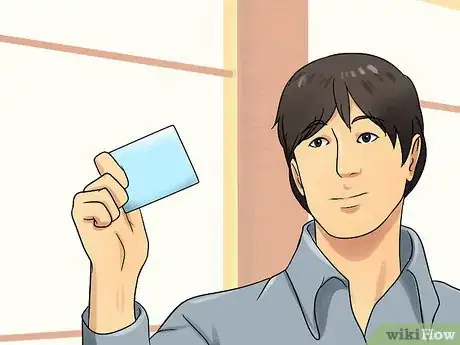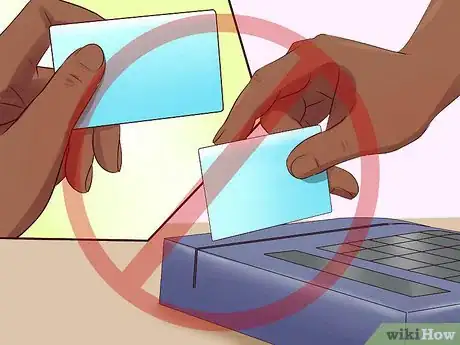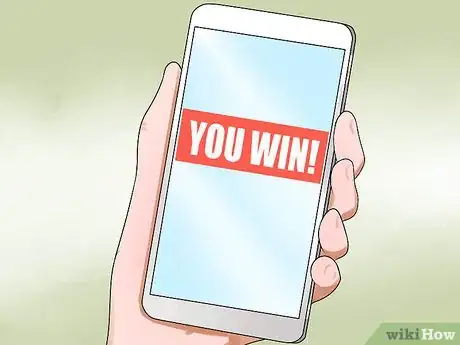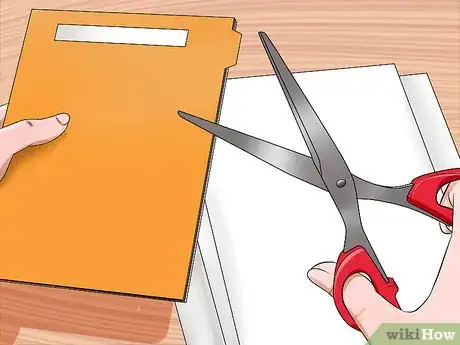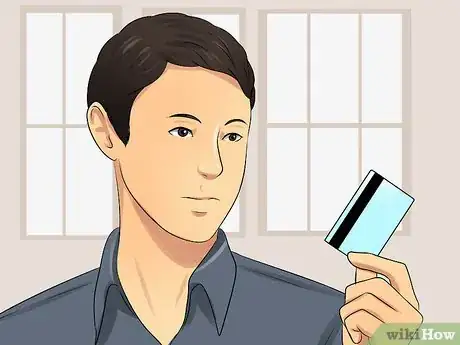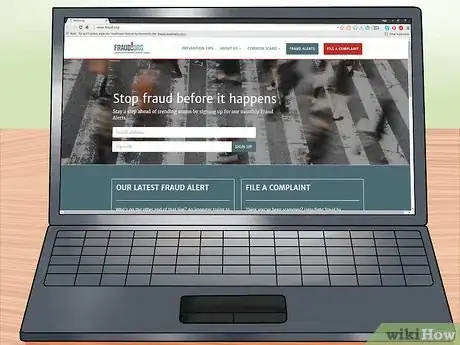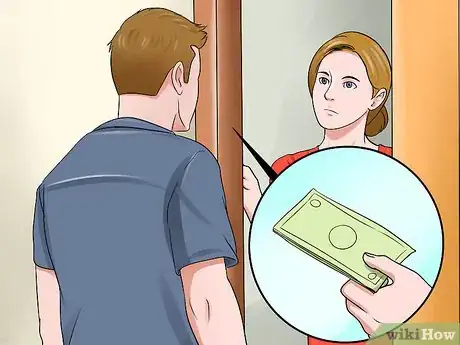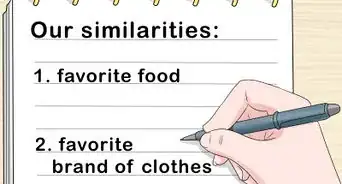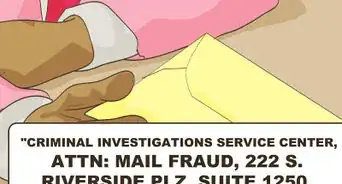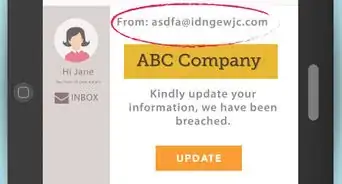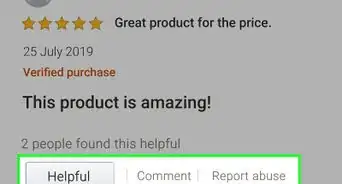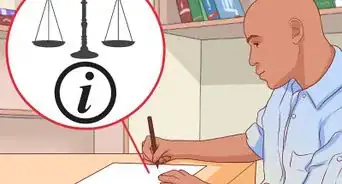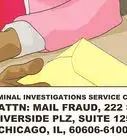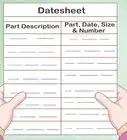X
wikiHow is a “wiki,” similar to Wikipedia, which means that many of our articles are co-written by multiple authors. To create this article, 18 people, some anonymous, worked to edit and improve it over time.
This article has been viewed 162,347 times.
Learn more...
The "con" in the phrase "con artist" is short for confidence.[1] They earn your trust and before you know it, your life savings are gone with the wind. Since con artists are experts at gaining your confidence, how do you recognize one before you fall for one of their scams? Knowing how these individuals work, and some of their common scams, will help you uncover their ploy.
Steps
Method 1
Method 1 of 4:
Spotting a Phony Lottery or Sweepstakes
-
1Know the set-up. You will receive some form of notification about an award, prize, lottery winning, or other money in the mail along with a check. Shortly after, you will receive a phone call from overseas explaining that the check was designed to cover fees, taxes or insurance on the award, prize, lottery winnings, etc. They will ask you to deposit the check and wire them money.
-
2Look for commonalities. Most telemarketing scams share similar identifiers. The person on the phone will ask for information or request some things from you. Some common elements to look for in telemarketing scams are:
- You have “won” something, even though you never applied for or competed for anything.
- You have to act immediately, or the offer will be invalid.
- You have to give them money and information. They will want you to send a check, give them a credit card, routing number, checking account number, bank information, etc.
- You don't need to check out the company or get advice from anyone.
Advertisement -
3Know the scam. When you give them a credit card number or deposit their “check” into the bank to cover the fees, taxes, etc., the check will turn out to be counterfeit or they have already charged your credit card, and there is no prize. Essentially, the overall goal of this scam is to get you to release money to them to secure your prize or award, when no such prize or award exists.
-
4Stop the scam. There are a number of ways you can avoid being taken by this scam. Some are far simpler than others, but the overall idea is that you should not ever release money, either through check, money-wire, or credit card, to someone who if offering you an award or prize. Think hard about this. When was the last time you won something and had to pay for it? Some simple ways to put an end to this charade are:
- Just hang up the phone. This is hard when you feel you could be passing up “free” money. Just know that you won't be getting that prize or award any time soon.
- Ask the person to contact your attorney and your bank directly. Banks and lawyers know the ins and outs of these types of scams, can stop them immediately, and will alert the authorities about what is going on.
- Tell the person you need time to think it over and will get back to them. They will likely try to pressure you and tell you that you need to act immediately. Don't be swayed. They are liars.
Advertisement
Method 2
Method 2 of 4:
Spotting a 419 Scam
-
1Know the set-up. A prince, king, princess or some other form of royalty has just died in a developing nation (more often than not, Nigeria). The person contacting you, usually by email, will explain that they inherited some incredible sum of money, but they need some small sum of money to get the larger sum released by the bank (to pay taxes, liens, etc.). They are asking you to give them the smaller sum and promising to pay you a much larger portion back when they secure the money.[2]
- A more recent variation of this set-up is the con artist telling you that he/she is a government official who is illegally transferring money out of Nigeria, and wants your help in his scheme. The 419ers do this because they feel they can keep you from alerting authorities to their scam by including you in their “illegal” plot.[3]
-
2Note the commonalities. Again, there are a number of variations on this scam, but they all entail the same thing- getting your money because you believed someone you never met. Look out for commonalities in 419 scams, which are:
- The person who has died is always royalty, and the person contacting you is their rightful heir. More often than not, they will say something to the effect of, “My uncle was the late King of Nigeria.” A simple Google search and common sense should tell you that Nigeria, a modern nation, doesn't have kings.[4]
- The money that this person should have access to is being held up by some relatively small sum of money. Think about it, if someone in Nigeria really stood to inherit 5 million dollars, why would they need to reach out to a random stranger in America for $500 or $5,000?[5]
- For whatever reason, these people tend to use strange and uncommon names, like “Festus”, “Octavius” or “Elmer”. When the name sounds fake, it probably is.
- The writing in these letters is usually riddled with spelling errors, grammar mistakes, syntactical errors, etc. Red flags should immediately go up when you see this. Well-positioned, and thus well-educated, Nigerians are well-versed in writing the English language. Why would a prince, who presumably has the best education money can afford, not be able to put a simple sentence together?[6]
-
3Watch for the scam. After sending the initial email, the person will ask you to respond by wiring them the small sum of money, which they will, of course, pay back with huge sums of interest. Unfortunately for you, there is no large sum of money and you won't be getting your money back.[7]
- Often times, the 419ers will string you along for more money. After you send the first amount asked for, they will contact you again and say that there was some problem with the bank and they need more. If you keep sending them money, they will keep asking for more. There is really no pretense under which you can bring these people to justice, so they don't really have anything to lose or fear by being too greedy.[8]
-
4Put a stop to it. Again, there are a number of ways to spot these scams, and a whole bunch of ways to avoid them. You can ignore the email or letter, pass it on to your attorney or banker, or send the letter to the FBI. You are fine as long as you don't release any money or personal information to these scammers.[9]
Advertisement
Method 3
Method 3 of 4:
Avoiding Identity Theft
-
1Shred financial documents. Don't ever throw away documents with your financial information on them without first shredding them. You can use an automatic shredder, scissors, or your hands for this. Make sure you shred bank and ATM receipts, credit card statements, or bank statements before disposing of them. [10]
-
2Don't give out your credit card number. Never tell anyone your credit card number unless you know that person is a legitimate representative of a financial institution or real business. Banks and businesses generally refrain from requesting credit card numbers through emails and will not call you out of the blue asking for your credit card number. Never tell someone who called or emailed you your credit card information. [11]
-
3Always review your financial statements. Banks and credit cards will send you monthly statements that will show where and what you spent your money on. Always review these documents carefully and notify your bank immediately if you notice a discrepancy on the statements. [12]
- You should keep a readily accessible list of numbers to call in the event that you lose your credit cards or your wallet. [13]
-
4Know what to do. In the case that your identity has been stolen, you will want to notify your bank, credit card company and the credit bureau. Ask the credit bureau to make a note in their files that your identity has been stolen so that you have proof of the incident. [14]
-
5Report nefarious activity. If you know of anyone who may be committing identity fraud or is receiving someone else's bank or credit statements, report them to the FBI or local law enforcement immediately.[15]
Advertisement
Method 4
Method 4 of 4:
Protecting Yourself from General Scams
-
1Ask how they got your name. If they can't give you a good answer, they probably got it out of a phonebook, or through another one of their current victims. Long story short, they don't know you, they didn't come across your name through reliable sources, and there is no reason to trust them just because they looked up your phone number and name.[16]
-
2Get it in writing. Con artists don't like putting their scams in writing, and might try to say they don't have time to do so. Any time a person who is offering you something refuses to put it in writing, you should be very leery of them. They are likely con artists.[17]
-
3Ask them to talk to professionals. Any time you think someone may be trying to flim flam you, have them speak with your attorney, financial advisor, or accountant. A con artist will tell you they don't have the time, or they'll take down the contact info, but never make contact with your representatives.[18]
-
4Request references. Ask to speak with several people who have already completed transactions with this person and seen results. Search for the names and numbers in the phonebook or on the internet to make sure they're real people. Don't accept testimonials as a substitute.[19]
-
5Ignore pressure to act immediately. A con artist will try to convince you that you have to act right now or else you'll miss your golden opportunity. However, if the good deal is not going to be available tomorrow, then it's not worth the risk.[20]
-
6Check for complaints. You should take some time to check if any complaints have been filed against the person who is offering you a “great deal” or any other suspicious offer. Chances are the person is not using a real name, but they may be using similar monikers used in other scams. Some resources to find complaints against scam artists are:[21] [22]
- National Financial Fraud Exchange (http://www.fraud.org/)
- North American Securities Administrators Association (http://www.nasaa.org/)
-
7Look out for red flags. If you've already entered into a transaction with someone, there are some warning signs you need to be aware of. Keep an eye out for the following warning signs: [23]
- Secrecy - Are you asked not to tell anyone?
- Cash only - Many (but not all) con artists don't like to be paid by check because it leaves a paper trail.
- Jackpot just around the corner - The con artist is stringing you along while he or she collects more money from you (e.g. "Any day now...). Your own denial might allow this procrastination to go on far longer than common sense would allow, because you don't want to face the possibility that you've been duped.
- Procrastination turns into intimidation - When your patience runs thin and you begin to question the con artist's credibility, you may end up getting treated like a traitor, or even a fool. They might try to intimidate you so you'll stick around until they can flee with the money. (E.g. "You're as guilty as I am in this.")
-
8Know your own weaknesses. There are characteristics and situations that con artists most often exploit. If you possess some of these characteristics, you need to be aware that con artists prey upon:[24]
- Loneliness
- Sense of charity
- Desperation regarding money (e.g. heavily indebted, business financial problems)
- Being unhappy with your life, and a tendency to look for a "quick fix"
- Falling in love (If a new romantic interest wants you to throw in your lot with theirs, get a second opinion! Ask your family and professionals for their advice.)
-
9Be on the lookout for common scams. There are too many scams out there to list them all here. However, there are a few general set-ups and types of scams that con artists use often. Be on the lookout for:
- Home improvement scams. Con artists will pressure you into making repairs or improvements you don't need.
- Bank scams/false bank examiner. The con artist asks the victim (usually an older widow) to test the honesty of employees by withdrawing substantial funds, which are given to the con artist for "examination". The victim is given a fake receipt and the con artist disappears with the cash.
- Investment scams. These include franchise scams, vending machine scams, land frauds, theft of inventions, securities investments scams, and work-at-home scams
- Postal frauds. These are related to chain letters, magazine subscriptions, unordered merchandise, or correspondence courses.
- Other scams. There are a handful of other scams out there, such as the bait and switch, charity rackets, computer dating, debt consolidation, contracts, dance lessons, freezer plans, psychic fraud, fortune tellers, health clubs, job placement, lonely hearts, medical quackery, missing heirs, referral sales, talent scouts, pyramid schemes, fake officials.
Advertisement
Community Q&A
-
QuestionWhat do I do if a family member wants to stay with me until parts he supposedly ordered to fix his car come in, but it has been three months? Is he a con artist?
 Community AnswerPossibly. Ask him what the car has to do with his living conditions, and why it also has to do with you. Question him on why he asked you instead of other family members.
Community AnswerPossibly. Ask him what the car has to do with his living conditions, and why it also has to do with you. Question him on why he asked you instead of other family members. -
QuestionHow can I tell if I'm being scammed online?
 Community AnswerIf you think you are being scammed online, and it sounds too easy or good to be true, then you probably are being scammed. Be careful.
Community AnswerIf you think you are being scammed online, and it sounds too easy or good to be true, then you probably are being scammed. Be careful.
Advertisement
References
- ↑ http://en.wikipedia.org/wiki/Confidence_trick
- ↑ https://www.fbi.gov/scams-safety/fraud
- ↑ https://www.fbi.gov/scams-safety/fraud
- ↑ https://www.fbi.gov/scams-safety/fraud
- ↑ https://www.fbi.gov/scams-safety/fraud
- ↑ https://www.fbi.gov/scams-safety/fraud
- ↑ https://www.fbi.gov/scams-safety/fraud
- ↑ https://www.fbi.gov/scams-safety/fraud
- ↑ https://www.fbi.gov/scams-safety/fraud
- ↑ https://www.fbi.gov/scams-safety/fraud
- ↑ https://www.fbi.gov/scams-safety/fraud
- ↑ https://www.fbi.gov/scams-safety/fraud
- ↑ https://www.fbi.gov/scams-safety/fraud
- ↑ https://www.fbi.gov/scams-safety/fraud
- ↑ https://www.fbi.gov/scams-safety/fraud
- ↑ https://www.fbi.gov/scams-safety/fraud
- ↑ https://www.fbi.gov/scams-safety/fraud
- ↑ https://www.fbi.gov/scams-safety/fraud
- ↑ https://www.fbi.gov/scams-safety/fraud
- ↑ https://www.fbi.gov/scams-safety/fraud
- ↑ http://www.fraud.org/
- ↑ http://www.nasaa.org/
- ↑ https://www.fbi.gov/scams-safety/fraud
- ↑ https://www.fbi.gov/scams-safety/fraud
About This Article
Advertisement


